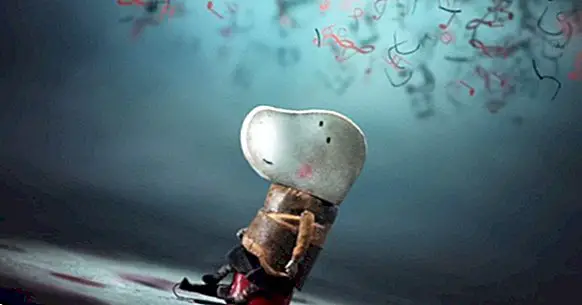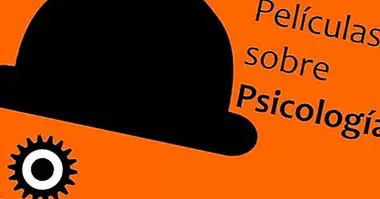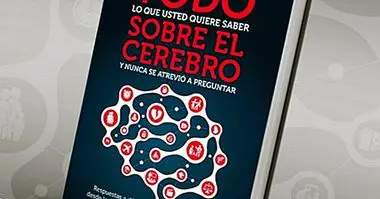An emotional short film about children with different abilities
"La cazo de Lorenzo" is an emotional short story by Isabelle Carrier . The author recreates the day to day of a different child through tender illustrations. His difficulties, his qualities, as well as the obstacles he has to face, are metaphorically represented in a clear and intelligent way.
Below you can see this story in audiovisual format:
- Related article: "Advice to help children cope with their schooling"
What does this story teach us?
This week, Alejandra Escura, collaborating child psychologist of the Mensalus Psychological and Psychological Assistance Institute, rescues an animated short film that tells the original story of Isabelle Carrier in order to offer some practical guidelines for parents.
Are these types of stories worked from the Psychology consultation?
The stories that especially use a metaphorical language to transform seemingly complicated processes (due to the emotional burden involved) in simple concepts are fantastic psychoeducational tools that are very helpful in individual and family therapies.
Its power lies in the ability to speak clearly of what we fear so much and present it as a natural process that can be approached from a constructive perspective. With stories like the one we present today, we understand that accepting the conflict, the situation, the difficulty, etc. always adds up
What do we "add" to "Lorenzo's saucepan"?
All right. We particularly emphasize the importance of following Lorenzo's path precisely because of the richness of this very functional view of the saucepan. He ends up carrying his red saucepan in a bag, which allows him to overcome the difficulties that previously hampered him. All this is achieved thanks to the security offered by an adult reference, a person who, with love and dedication, marks the road while offering independence to experience it.
How do parents usually react to the presence of the "bucket"?
Parents fear that the child will suffer and react to this alert. In fact, your anticipatory anxiety is one of the elements that can generate more emotional tension. For this reason, we work together with families to increase self-awareness about the effects generated by the anxiety that is breathed at home.
When this anxiety is very high, parents only see "the bucket". If this occurs, the overprotectiveness of the warning can seriously impede the child's ability to acquire resources in a healthy way.
What examples of attitudes related to overprotection can limit a child's personal growth?
For example, a continuous system of awards. On occasion, parents reward excessively (physically or verbally) in order to motivate the child. The result is a disconnection with positive reinforcement because it loses meaning. If the child does not feel that he has made an effort and receives a prize, what is the point? For this reason it is important to recognize the achievement but also to normalize it so that, in this way, the child believes in his capacity to pursue goals in a natural way. Seeing that the elders trust him is the best way.
In this sense, speeches that enhance ingenuity (eg, "I liked how you have done" X "," I see that you have achieved "Y" without having to do "Z", etc.) offer extra information to the child that does not reveal the «cazo» and, on the other hand, evidences a particular strategy characteristic of its modus operandi.
There is a moment when Lorenzo hides under his bucket. What guidelines can help parents in these cases?
At first it is important to encourage the child to express how he feels and show understanding. Putting words to the emotions opens a channel of communication that increases the insight capacity of the child and helps him connect with others. On the other hand, enhancing their abilities again through the facts will be our objective. The action is what will show the child how to carry the hung saucepan instead of continuously looking through it.
That said, we would encourage parents to go out there with their children in order to enjoy a sports practice, a walk, an excursion, a dinner, a family visit, an educational outing, etc., reducing the role of the bucket and granting it the child and the activity itself.
Living and feeling with the saucepan turns the person into a free being that finds the resource in itself. On the contrary, keeping your eyes permanently in the pot causes an increase in your size (this is when thoughts related to limitation break out).
What would you say to all those parents who are reading this interview?
The saucepan is natural, is part of that person, so it is important not to see it as an obstacle but as an opportunity to acquire essential resources that make it the protagonist of their own life story.
As parents, being there to listen, understand and accompany is the best way to offer the child the opportunity to experiment, learn and grow by the dipper.
- Maybe you're interested: "Positive discipline: educating from mutual respect"



















